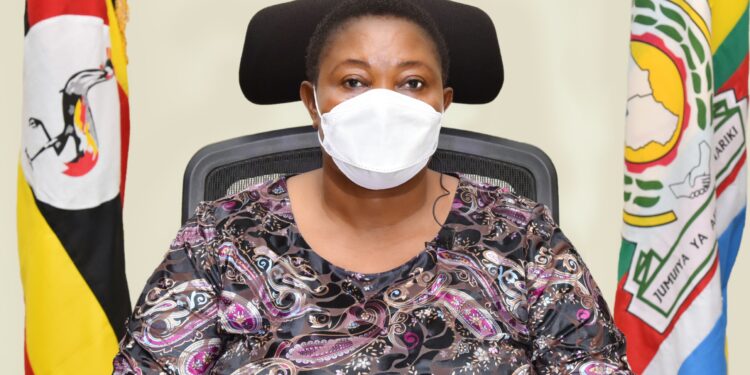I would like to remind Ugandans that the directive of H.E the President of the Republic of Uganda, Gen. Yoweri Kaguta Museveni, of February 28 (last year) prohibiting illegal land evictions countrywide still stands and will remain in place until we rid the country of all such irrational acts. Previously, during Covid-19 lockdown, he had banned evictions of any nature in the country. What is the President’s intention in instituting these measures?
Just to be clear, what is an eviction? From various sources, “eviction” is defined as the act or process of removing someone from a house or land. Eviction has an element of the use of force, which usually arises when the would-be evictee is unwilling to leave the house, space or piece of land voluntarily. Eviction can be lawful or unlawful (illegal). If it is illegal, it means that the due process of the law has not been followed and/or that those carrying out the eviction have no lawful claim on the property or they have not followed the laid out procedures.
Overtime, despite the National Resistance Movement (NRM) Government’s program to streamline land management systems in the country, there have been many cases of illegal evictions, or lawful evictions carried out wrongly. In each of these cases, acts of violence, social instability and bloodshed have occurred. In some cases, entire villages have been affected, as if we are in a lawless and ungoverned country. In most of the cases (which I will not enumerate because some are under review), it’s the vulnerable poor on the receiving end of the highhandedness and deprivation of the right to exist.
As a result of forced evictions, people are often left homeless and destitute, without means to earn a livelihood and often with no effective access to legal or other remedies. Forced evictions increase inequality and worsen the economic bearing of vulnerable and marginalised sectors of society, especially the elderly, women and children. With NRM in charge of Government, such cannot be allowed to happen because the whole idea of waging a protracted people’s struggle to liberate Uganda was essentially targeted to benefit such citizens who were previously voiceless and helpless.
Actors who were engaged in such illegal and wrongly executed evictions were hiding behind the law or the lack of care of leaders; they only cared for their own interests and many times those of conniving leaders and security personnel whom they would bribe as they terrorised innocent citizens. Some lost their lives, others ended up in prison or on the run. All this is a recipe for disaster. Those behind such acts are the emerging opposition; they are terrorists!
In any case, evictions must always comply with human rights law. Under the United Nations charter, States are under obligation to “refrain from, and protect against, forced evictions from home(s) and land.” This provision arises from several international legal instruments including the Universal Declaration of Human Rights, the International Covenant on Economic, Social and Cultural Rights and the Convention on the Rights of the Child.In its resolution 1993/77, the Commission on Human Rights stated that the “practice of forced eviction constitutes a gross violation of human rights, in particular of the right to adequate housing.”
President Museveni’s intervention on behalf of Ugandans is intended to protect the rights of citizens no matter their statuts and, above all, to prevent breach of peace and bloodshed. It’s not enough to have money and acquire a property; one has to undertake due diligence to ensure that the property has no squatters or contestation of any nature. Generally, evictions should only be carried out in exceptional circumstances, and in full accordance with relevant laws.
Prior to carrying out any evictions, all feasible alternatives must be explored in consultation with the affected persons; adequate and reasonable notice must be given to all affected persons prior to the scheduled date of eviction, with the provision of legal remedies to seek redress in case they are dissatisfied and due compensation. What does it profit anybody to purchase land and take possession of it while rendering hundreds or thousands destitute? To what benefit? How safe would that person’s developments on the disputed land be? What if the dispossessed persons decided to exact revenge?
Thankfully, H.E the President guided that all evictions must be carried out after thorough scrutiny by the District and City Security Committees (D/CSC), in the respective districts and cities. Court orders must be vetted to ascertain their legitimacy; after which the consent of the Minister of Lands must be obtained before the eviction is implemented. On top of that, there must be adequate security on site to ensure that not violence breaks out.
These measures by the President are not in any way intended to disadvantage landowners or those that have acquired their properties lawfully. Rather, their rights are as well safeguarded because they will not lose what rightfully belongs to them and their relationship with squatters/tenants is being rationalised.
I also call for multisectoral convergence to educate and sensitise Ugandans on their land rights so that they are equipped to defend those rights and not to be taken advantage of by crafty lawyers, conniving leaders or corrupt elements in the courts. Again, RDCs, RCCs and your Deputies, under no circumstances should you permit illegal evictions or wrongly executed evictions in your areas of responsibility. Failure to abide by the Presidential directive is of grave repercussions on you. I thank those who have complied well!
The author is the Minister for the Presidency
Do you have a story in your community or an opinion to share with us: Email us at editorial@watchdoguganda.com













